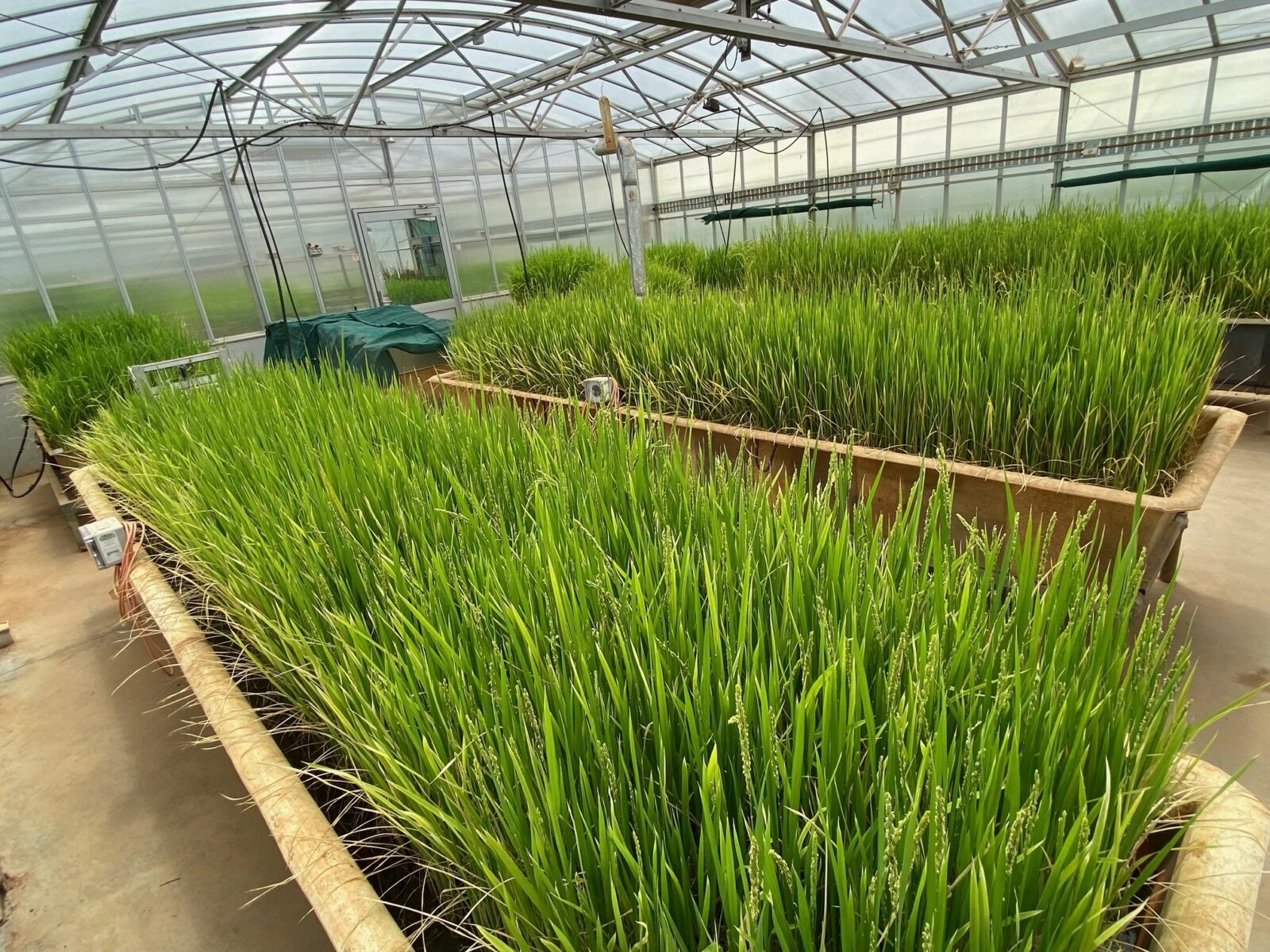Novel analysis unveils complex composition of tea tree oil

 RICE / Tuesday, 14 November 2023
RICE / Tuesday, 14 November 2023 
RBA is a key project within the AgriFutures Australia Rice Research, Development and Extension Program. Designed to ensure the long-term alignment of the rice breeding program with the rice industry’s water productivity goal of 1.5 tonnes/ML, the RBA team has made significant headway in its first year of operation.
Successful breeding strategy
Chief Executive Officer (CEO) at RBA, Dr Georgina Pengilley, says that the team’s comprehensive approach ensures that rice growers can anticipate enhanced varieties across various quality categories.
“Being clear about what RBA is breeding for allows us to focus on those areas and deploy resources to maximise the return on investment by levy payers and deliver varieties to growers that will meet market needs and deliver what they need in the way of improved agronomic traits,” said Dr Pengilley.
“Without this focus, breeding programs can often spend time and money on traits that don’t deliver value to growers,” she said.
RBA’s breeding strategy is primarily focused on three distinct market segments or quality classes of rice. Bold medium grain (V071), Calrose (Sherpa), and Jasmine types (Topaz) are all in the spotlight, with medium grains taking centre stage.
The breeding program is broken down into several key pipelines, each with well-defined deliverables. The first continues the previous program’s material, the second involves marker-assisted backcross (MABC) conversion, while the third and fourth pipelines are part of a modified recurrent selection process.
“Having the different pipelines provides a line of sight for growers of when they can expect new varieties to be released,” explained Dr Pengilley.
“It provides assurance that their investment in the previous rice breeding program has not been wasted, and that the current varieties they grow, that are superior with respect to quality in the market, can be quickly improved with cold tolerance.”
“This will result in increased yield and yield stability while the longer term breeding strategy delivers the step change in water productivity that the industry is looking for longer term,” she said.
Key program achievements
Three key areas within RBA’s program have each achieved significant milestones, allowing RBA to fast track the delivery of new and improved varieties to growers.
The glasshouse program saw essential developments, including the completion of two crossing blocks, adoption of potting mix over soil, cold tolerance screenings, and tray system improvements leading to a doubling of the scale from the previous breeding program.
Senior Rice Breeder, Dr Chris Proud, says that the glasshouse program is essential in expediting the breeding process and delivering new rice varieties to growers.
“We have been able to implement some simple changes that have doubled the number of plants that RBA can grow at any one time enabling the simultaneous cultivation of over 48,000 individuals,” he explained.
“This has allowed RBA to shift the early stages of the breeding program into the glasshouse which removes two years off a breeding cycle allowing RBA to deliver varieties faster to growers.”
Field trials are a fundamental component of RBA’s operation, with three sets of S3 trials and four S4 trials completed in CY2023. RBA is also striving for increased accuracy in the results of these trials and is collaborating with the University of Wollongong statistics team to enhance data analysis.
“This work will become simpler in the future as the Genovix database system, which organises data in a user-friendly format, is implemented,” explained Dr Proud.
A winter nursery has also been successfully completed in Mackay to assess a subset of F2 material from the previous breeding program, specifically those crosses identified for their cold tolerance. The successful candidates from this evaluation will be incorporated into the breeding program.
Furthermore, RBA has made significant advancements in pure seed production, ensuring the delivery of clean and genetically pure seed to their commercialisation partner, SunRice.
“RBA has shortened and simplified the pure seed program which also adopts the use of DNA technology to ensure the delivery of pure seed to the commercialisation party,” explained Dr Proud.
“The new program will be able to deliver new varieties to industry in a shorter timeframe and at a lower cost,” he said.
Rapid results indicative of future potential
Despite navigating through many challenges in their inaugural year with a brand new team, Dr Pengilley says she couldn’t be happier with the team’s result.
“I think we achieved a huge amount in a really challenging year,” said Dr Pengilley.
“The season started terribly last year with a flood, so being able to actually get trials in the ground in a timely manner was really challenging, as was starting from scratch with a brand new team.”
“I’m really pleased with how the team has performed and extremely proud that we were able to deliver this result in such a challenging first year,” she said.
An undeniably successful inaugural year underscores the immense potential and commitment of RBA in reshaping the future of rice breeding in Australia.
For more in-depth insights into their achievements and the road ahead, read RBA’s annual results report
Learn more about what’s happening in the AgriFutures Australia Rice Program
 TEA TREE OIL / 14.11.23
TEA TREE OIL / 14.11.23  WORKFORCE AND LEADERSHIP / 14.11.23
WORKFORCE AND LEADERSHIP / 14.11.23  EMERGING INDUSTRIES / 14.11.23
EMERGING INDUSTRIES / 14.11.23  WORKFORCE AND LEADERSHIP / 14.11.23
WORKFORCE AND LEADERSHIP / 14.11.23